
Yemen"s trade landscape: Import-export challenges and opportunities. "
The conflict has caused a significant contraction in Yemen's GDP, as infrastructure damage, disruptions in production, and decreased investment have hampered economic growth. Yemen has experienced high inflation rates due to disruptions in the supply chain, reduced domestic production, and increased reliance on imports. The conflict has led to widespread job losses and limited employment opportunities, contributing to high unemployment rates and increased poverty levels. Yemen faces a severe humanitarian crisis, with millions of people in need of humanitarian assistance, including food, water, and healthcare. This crisis has strained the country's resources and further weakened its economic resilience.
The current account balance in Yemen is about 13 percent, while the current account balance to GDP has grown by more than 13 percent. The export and import system in Yemen has grown by 74%, and it is clear that the trade process in Yemen is being seriously pursued. Keep in mind that the situation of capital turnover in Yemen has also increased by 17%. The state of gold reserves in Yemen is about 1.60 tons (468.8 million dollars). The terrorism index in this country is more than 8.08 percent. The amount of foreign direct investment in this country is also expected to grow by 15%. Yemen's crude oil production is more than 11 percent, accounting for 466.29 BBL. The truth is that Yemen's economic ranking is good, and it has a good structure in terms of trade.
The Yemeni rial has experienced substantial depreciation, leading to exchange rate volatility and making it difficult for businesses and individuals to plan and operate effectively. The conflict has placed strain on Yemen's banking sector, with disruptions to banking operations, limited access to financial services, and increased risks to financial stability. Yemen's political situation and conflict-related challenges have resulted in limited access to international financial institutions and development assistance, impairing the country's ability to address its financial needs.
Yemen's ranking of the government line has been seriously pursued, internet speed in this country has grown by 12%. Yemen's ease of doing business has grown by 18%. The country has reached more than 14% in its competitive index. The corruption index in this country is around 27 points. The rate of corruption in the country has also increased by 17%. The economic and trade situation in Yemen is more than 29% based on competitive indicators. Economic forecasts show that the country is facing a routine government situation.
Consumer spending is growing by more than 3% in Yemen, and it is clear that life in Yemen in general has taken certain approaches. The country's ranking in the field of communications has been more than 79 percent. Evidence shows that Yemen is growing by more than 19 percent in terms of social welfare. It is clear that the trade situation in Yemen is growing by more than 56%.
In Yemen, the president is the head of government who is elected by popular vote for a seven-year term. The president must elect the head of state. The head of the first government is the minister and is appointed by the president. The Senate has 111 seats, and its representatives are appointed by the president. The House of Representatives in Yemen has about 301 seats, and representatives in the country are elected by popular vote for a six-year term. Keep in mind that the political structure of Yemen has not changed in writing to date.
The conflict has disrupted trade routes, both within Yemen and with neighboring countries. Blockades, security concerns, and damaged infrastructure have hindered the movement of goods and affected the overall commercial activities in the country. The conflict and political instability have deterred foreign direct investment in Yemen. The risks associated with the conflict, including security concerns and uncertain political environment, have made international businesses cautious about investing in the country. The importation of humanitarian aid and essential goods has been a critical aspect of commercial activities in Yemen. International organizations and relief agencies play a crucial role in facilitating the importation and distribution of humanitarian supplies.
-

Yemen"s economy has faced severe challenges due to ongoing conflict, leading to a significant contraction in GDP and high inflation rates. The disruption of supply chains and reduced domestic production have increased reliance on imports, resulting in widespread job losses and high unemployment. The humanitarian crisis has escalated, with millions requiring assistance for basic needs such as food and healthcare. Despite these challenges, Yemen"s trade system has shown growth, with a 74% increase in export and import activities. The current account balance is approximately 13%, indicating some resilience in trade processes. However, the depreciation of the Yemeni rial has created exchange rate volatility, complicating business operations. Foreign direct investment is projected to grow by 15%, while crude oil production remains significant at over 11%. Yemen"s ease of doing business has improved by 18%, reflecting potential opportunities for trade despite the political instability that deters international investment.
The conflict has also disrupted trade routes and hindered commercial activities, but humanitarian aid imports remain vital. Overall, while Yemen faces substantial economic hurdles, there are signs of growth in certain sectors that could be leveraged for future development. "
-
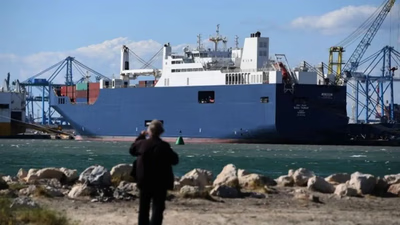
Saudi Arabia and the UAE have been pivotal in supporting Yemen"s internationally recognized government through military and humanitarian aid. The U. S. has also played a role by providing military support and facilitating peace negotiations. Various international organizations, including the World Bank and IMF, are engaged in addressing Yemen"s humanitarian crisis. The demographic profile of Yemen shows a young population with a literacy rate of about 50%. Recent improvements in economic conditions are evident, particularly in the organic food sector and machine equipment production. Urbanization efforts are underway, with significant growth in construction and transportation sectors.
The Yemeni government is increasingly visible in its investment strategies, aiming to enhance economic stability. Additionally, the UN and EU have been active in promoting peace and development initiatives, while other Gulf Cooperation Council (GCC) countries contribute through aid programs. The evolving dynamics of international support reflect the complexities of the ongoing conflict and humanitarian needs.
-
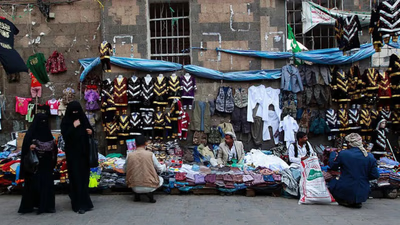
Yemen"s legal framework is shaped by its 2001 constitution, which establishes the government"s structure and individual rights. Islamic law, or Sharia, significantly influences personal, family, and criminal law. The civil law system, based on French law, includes the Yemeni Commercial Code that governs commercial activities such as contracts and business transactions. Property rights are regulated by laws concerning real estate ownership and transfers. Intellectual property laws protect creators" rights. The ongoing conflict has severely impacted Yemen"s economy, leading to increased poverty and a decline in agricultural production. Coffee, particularly Moka coffee, was once a significant export but has diminished due to war conditions. The agricultural sector now primarily focuses on qat cultivation for domestic use.
Oil and gas production has also suffered due to security issues stemming from the conflict. Family matters are largely governed by Sharia principles, while labor rights are outlined in the Yemeni Labor Law. Restoring political stability is crucial for reviving Yemen"s economy and alleviating poverty. "
-
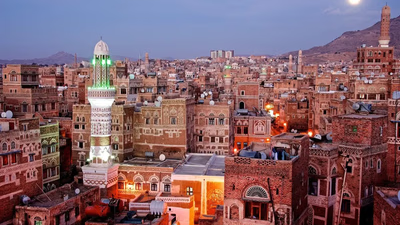
Yemen"s major cities, including Aden, Taiz, Al Hudaydah, Mukalla, Ibb, Dhamar, and Sayyan, play crucial roles in the country"s trade and commerce landscape. Aden serves as a strategic port city along the Gulf of Aden, facilitating significant import and export activities. Al Hudaydah is another vital port on the Red Sea coast that acts as a gateway for trade despite ongoing conflicts. Taiz is recognized for its historical significance and has developed into an academic hub. Mukalla stands out as a commercial center in southeastern Yemen, while Ibb is known for its agricultural contributions. Dhamar boasts historical sites and is advancing economically. Sayyan combines scenic beauty with agricultural activities and tourism potential. The historical context of Yemen reveals a rich trading legacy dating back to ancient civilizations like the Sabaeans and Qutban.
The region"s strategic location has historically linked trade routes from the Persian Gulf to the Mediterranean Sea, making it an essential player in regional commerce. "
-
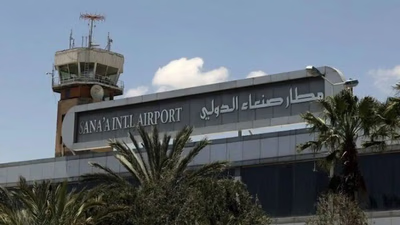
Yemen"s export and import system is significantly influenced by ongoing conflict, which has severely disrupted trade activities. The country traditionally exports crude oil, LNG, refined petroleum products, fish, and agricultural goods like coffee and honey. Key ports such as Aden, Hodeidah, and Mukalla are vital for these exports but have suffered from infrastructure damage due to the conflict. Despite these challenges, Yemen"s export and import system has shown growth of 74%, indicating a persistent effort to engage in trade. The economy relies heavily on imports for essential commodities like food and fuel due to insufficient domestic production capacity. The humanitarian crisis exacerbated by the conflict has made importing basic necessities crucial for survival. Additionally, Yemen"s ease of doing business has improved by 18%, suggesting potential opportunities for B2B marketplaces in the region. However, challenges remain with supply chain disruptions and security concerns affecting both importers and exporters. The reliance on international aid highlights the urgent need for effective supply chain solutions in Yemen"s trade landscape.
-
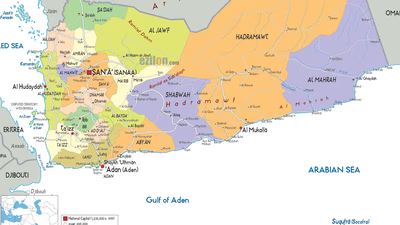
Yemen, located at the southern entrance of the Red Sea, serves as a vital trade hub due to its strategic position. The country has several key ports, including Aden and Hodeidah, facilitating significant import and export activities. Recent years have seen a shift in Yemen"s import landscape, with live food and livestock becoming predominant. Despite ongoing conflicts, Yemen"s economy has shown resilience, with a reported 12% growth in revenue generation and a notable 20% increase in GDP growth rate. Trade balances have improved by 14%, while the export-import system has expanded by 74%. The capital turnover situation has also increased by 17%, indicating a positive trend in economic activity. Improvements in infrastructure and ease of doing business have been observed, with internet speed rising by 12%. However, Yemen continues to face economic challenges due to political instability. The diverse climate across the country affects agricultural productivity and trade dynamics.






